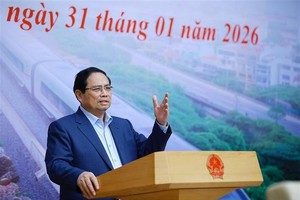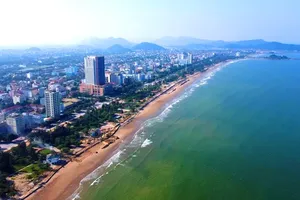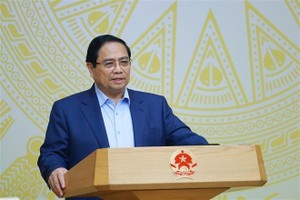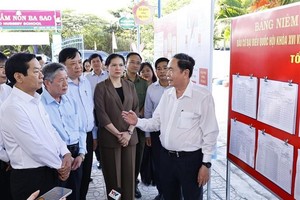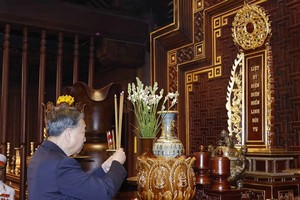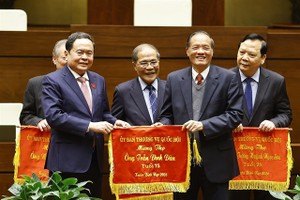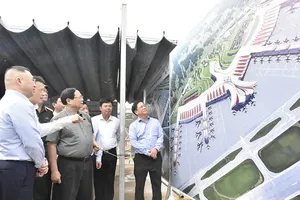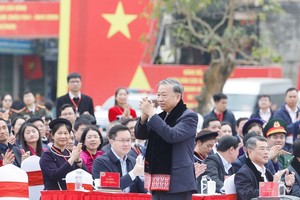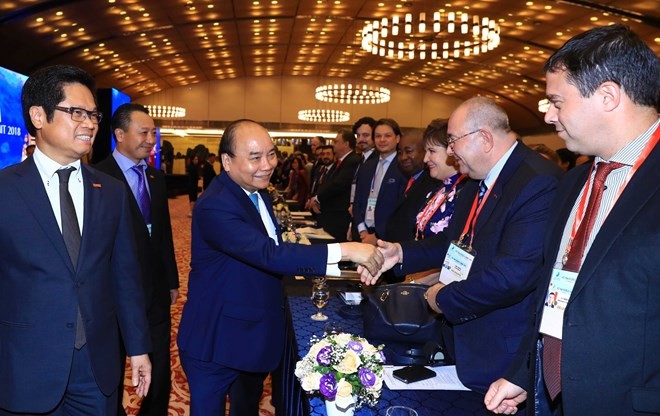
The summit, themed “Vietnam – We Mean Business: Connect and Innovate”, was part of the World Economic Forum on ASEAN 2018. It attracted more than 1,200 entrepreneurs and investors from around the world, along with representatives of foreign business associations, embassies, and international organisations in Vietnam.
Co-chairing the event with WEF President Borge Brende, PM Phuc said only 21 percent of Vietnam’s small- and medium-sized enterprises (SMEs) have taken part in the global value chains, much lower than the 46 percent in other ASEAN nations.
Although many foreign studies have pointed out Vietnam’s success in global supply chains, generally speaking, Vietnamese businesses have only joined these chains in fields such as assembling or product packaging, which are links with low value that lack sustainability in supply chains.
Input materials made by domestic manufacturers currently account for less than 27 percent of the total input value of FDI firms, while the remaining is purchased from other FDI companies or imported, he noted.
Facing that fact, Vietnam aims to move to a higher position in global value chains and strengthen the connectivity between Vietnamese and FDI businesses, PM Phuc said, adding that it is becoming one of the workshops of the world and a pivotal spot for trans-national firms to supply products and services around the globe.
The development of many local private enterprises shows that the business environment in Vietnam is completely able to nurture big companies capable of competing against and cooperating with international ones, he said.
He noted that by actively integrating into the world, the country is now a member of the World Trade Organisation and 12 free trade agreements, including the Comprehensive and Progressive Agreement for Trans-Pacific Partnership (CPTPP), the EU-Vietnam Free Trade Agreement, and the Regional Comprehensive Economic Partnership (RCEP).
From here, investors have a chance to access almost all major markets in the world, especially ASEAN. Vietnam plays a significant role of a gateway and has one of the best geopolitical positions in global supply chains that not every country has access to, he emphasised.
The country has had trade relations with over 200 countries and territories. It has also taken the lead in exporting many agricultural products like rice, pepper, coffee, cashew nut, basa fish, and shrimp. PM Phuc expressed his belief that Vietnam’s agriculture potential would be fully tapped and could be a big magnet for investment and cooperation.
He also said Vietnam needs to exert more efforts, foster more innovations, and make stronger reforms to improve its economy’s development level and narrow the gap with regional countries. He affirmed that the successes of businesses in the nation are also part of his Government’s successes.
At the summit, PM Phuc and WEF President Borge Brende also addressed issues that participants were interested in, such as the CPTPP, Industry 4.0, e-Government, and renewable energy

